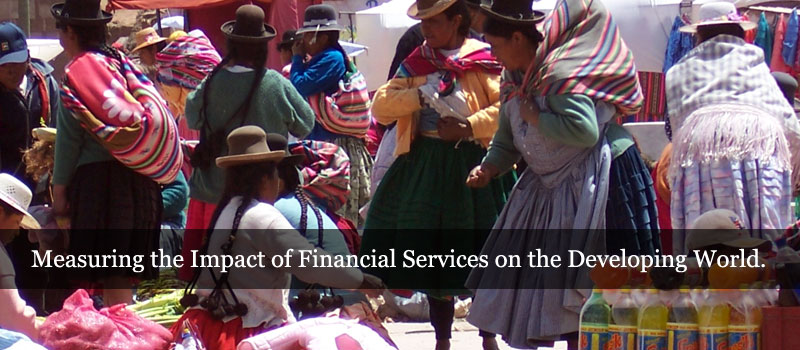Market Segmentation and Outreach to the Poor: Results from Client Welfare Assessment Survey in Peru
In May 2009, Pro Mujer Peru (PMP), a decade old microfinance organization in Peru, reached over 53,815 clients throughout the country with a financially sustainable loan portfolio of nearly US $8.5 million. Currently, Pro Mujer offers several loan products: Regular loan (urban and rural), Premium loan (urban), and Feria loan, and Yapita Feria loan (rural). PMP also offers savings accounts (of which are mandatory), healthcare coverage through partner alliances, and business and human development courses, including marketing, customer service, and health education.
In 2007, PMP was reaching 49,280 clients with only the regular loan product in predominantly urban areas during a time when competition from other MFIs was beginning to emerge. Market research carried out by PMP from September 2006 to March 2007 showed that their clients were generally satisfied with regular loans, but the product was limited in its ability to serve rural clients while also satisfying the demands of their established clients. To assist in PMP's product development and to help launch new loan products tailored to specific client segments (e.g., established PMP clients and potential rural clients), the Bill and Melinda Gates Foundation provided a grant (also in 2007) to Pro Mujer International. PMP's innovations were to segment clients of certain characteristics and provide them tailored products to fulfill their demand for financial services. In doing so, PMP expected improvements in its breadth and depth of outreach offering value to both PMP and their clients.
In 2008-2009, the IRIS Center conducted a Client Welfare Assessment Survey that helps assess the depth of outreach by measuring client poverty levels. The study compares client poverty status of Regular, Premium and Feria clients to understand if the products are associated with various poverty segments of client populations. The study seeks to determine if loan products tailored to specific market segments indeed increase PMP's depth of outreach to poor households. The breadth (number of clients reached) of outreach is also considered in the overall analysis. This study complements MFO studies that examined the value proposition of PMP's new products for PMP and their clients (see Ferguson, 2008 & 2009).
It should be noted that the study does not compare PMP's depth and breadth of outreach to other financial providers reaching similar client segments (or of clients of any financial service provider). The study does not examine the impact of PMP products on PMP's depth of outreach or PMP's value proposition in terms of competitiveness for the targeted clients. Therefore, the study results should be interpreted with caution.
The report is organized as follows: the next section, Section II, will present an overview of Pro Mujer Peru; Section III presents a discussion on the research design used in the study; Section IV presents the results of the study starting with the demographic characteristics of sampled clients and then a discussion on poverty outreach among clients using various PMP loan products; Section V concludes the report with a discussion on the implications of the innovations for the outreach of PMP products.




